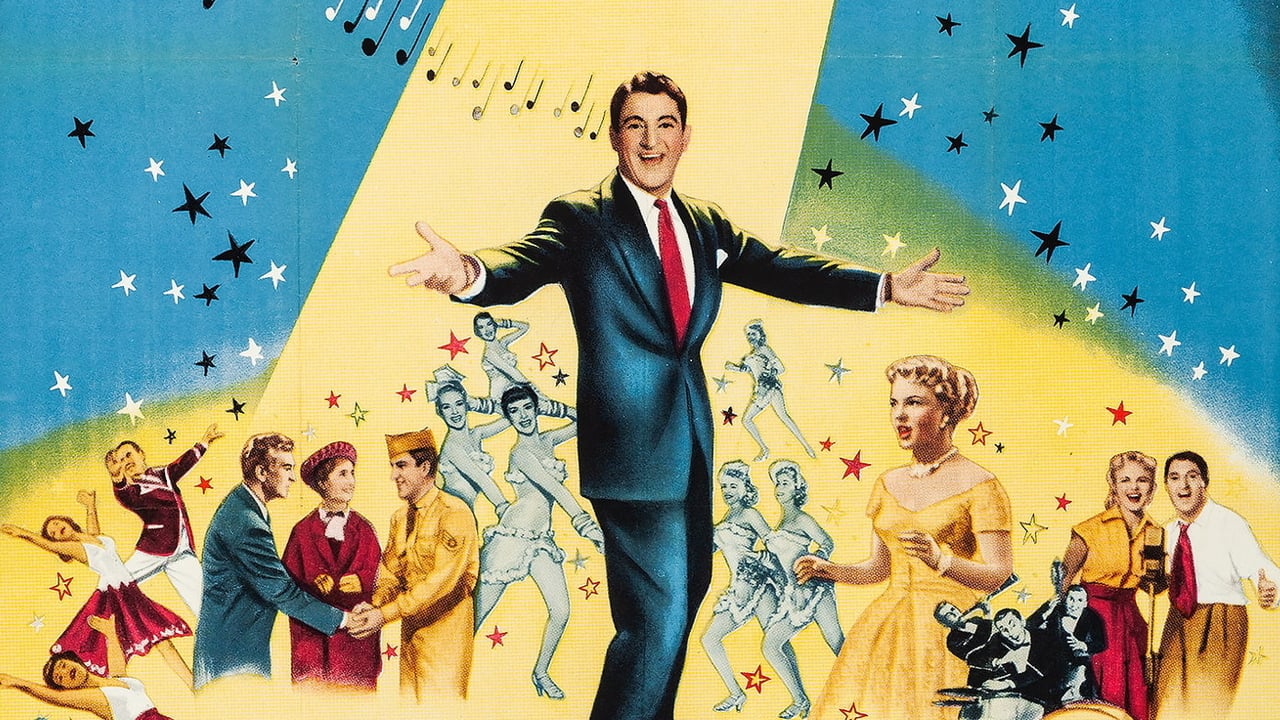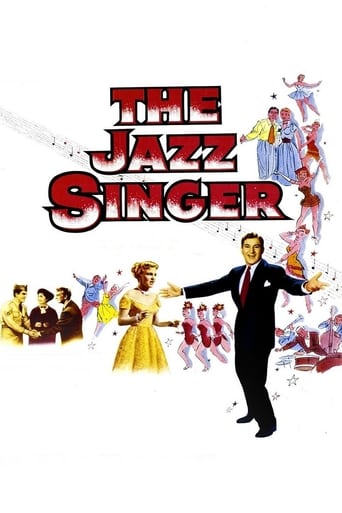

Angels sing above the Temple Sinai in Philadelphia, while dashing Danny Thomas (as Jerry Golding) returns from service in the Korean War. Celebrating the Jewish New Year (Rosh Hashanah), Mr. Thomas' observant parents Eduard Franz and Mildred Dunnock (as David and Ruth) are proud of their son's honorable discharge. Father Franz retires as cantor at the Temple so that Thomas can take over the position. The family has served as cantor for six generations. However, Thomas has decided to break with tradition. He wants to pursue a secular career in show business. Mother Dunnock seems understanding, but father Franz is righteously indignant. Life is tough for Thomas, but having singing girlfriend Peggy Lee (as Judy Lane) around helps...In a part played by George Jessel on Broadway (1925-1926) and Al Jolson in the movies (1927), Thomas has big shoes to fill. Although he recorded his songs, some of Thomas' dubbing doesn't look authentic. Also, he has stand-up comic skills far superior to the flat routines you see here, which are evident in his long career. Other than that, Thomas is convincing in the role...While a little lax in the dramatic scenes, Ms. Lee is the film's main asset. Her voice is exquisite and, more importantly, she and director Michael Curtiz make each musical number feel like it belongs exactly where it appears in the script. Unfortunately, Lee's role has been revised to match the religion of Thomas' character. This weakens the story's central conflict (between Thomas and Franz). It looks spectacular in Technicolor, but we wonder why Thomas' parents live in a luxurious palace, where modestly-attired mother Dunnock stands out by refusing a fur coat and dressing like the help. A consistent best supporting actress, Dunnock and Mr. Curtiz make her mother role the most technically well-drawn, with her final scene wordlessly offering conflict resolution.****** The Jazz Singer (12/30/52) Michael Curtiz ~ Danny Thomas, Peggy Lee, Mildred Dunnock, Eduard Franz
... View MoreMichael Curtiz second musical directed in 2 years with Danny Thomas, this one a remake of the 1927 classic of the same name. The movie is quite watchable. Especially nostalgic is the color shots of Times Square as it used to be before today's LCD ads. Fans of Peggy Lee should catch this one. She looks fantastic and sounds great in the songs she does. The songs are good too. Thomas plays the Cantors son who wants to be a popular singer. Thomas does a lot of stand up comedy in this movie.Thomas is quite touching doing a special song for his mother late in the film. It is kind of strange that the same night he is called to his dying father's bedside. Why is mom at the show while dad is home ill? That is a little different for this era the film was made. The film is pretty good overall. Thomas fans will not want to miss this one either.
... View MoreTo be frank, this is probably the best version in my book as a sound movie version of the Jazz Singer. The 1927 version is really a silent movie despite its build-up as the first talkie.Danny Thomas is a great comedian, and he sings very well. He does the Jewish stuff with feeling. Peggy Lee is great and any film that has her is always entertaining. Allan Joslyn is not too entertaining and we could have done without him. One question: since when do Cantors live in such luxurious houses???
... View MoreGood grief.. to think I've seen it all.. Danny Thomas looks SO out of place in this mishmash. He seems really uncomfortable. He can't sing worth a lick, and when he's paired up with Peggy Lee (PEGGY LEE???) she easily.. EASILY outsings him! Maybe the director saw this and made him do the reall really bad comedy routines that he sometimes does in the film. Peggy Lee is okay, but the whole thing is a shambles. Good for a laugh, maybe.
... View More